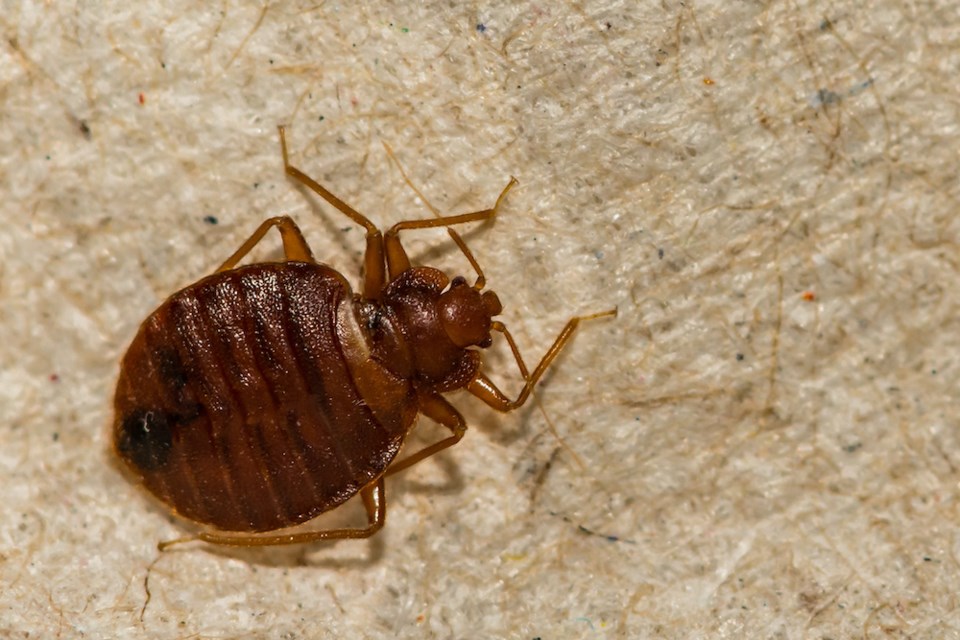Have you ever lived in an apartment building that had an issue with bed bugs?
Whether you've ever had a bed bug problem, been at risk of having them or you've simply been alarmed about the prospect of getting them, the pint-sized pests cause a mammoth amount of turmoil.
And it isn't hard to see why.
Once a building has an issue with bed bugs, they are incredibly difficult to get rid of — and it only takes one person with the issue to wreak havoc on the entire property. Bed bugs are adept hitchhikers, and they can thrive in either clean or dirty homes.
According to of the Residential Tenancy Act (RTA), landlords are responsible for providing and maintaining their residential properties in a state that complies with the health, safety and housing standards required by law. In other words, they need to keep your pad pest-free or deal with pest issues as they arise.
But tenants also bear a responsibility to uphold the cleanliness of their rental units, too.
The RTA stipulates that a "tenant must maintain reasonable health, cleanliness and sanitary standards throughout the rental unit."
The BC Residential Tenancy Branch (RTB) sees a range of complaints from landlords and tenants regarding cleanliness and pest issues. Unsurprisingly, many of the disputes involve bed bugs.
Here are just a handful of the multiple decisions involving bed bug-related issues in past years.
Years of infestation
In this , the tenants testified that the building was dealing with a bed bug issue for a long time. In July 2019, their mattress had to be replaced and the "landlord did not properly respond to the bed bug infestation," they said. According to the tenants, the landlord advised them to purchase a mattress cover to prevent "further infestation."
In 2018, the landlord said they attempted a heat treatment that was unsuccessful in rectifying the infestation issue. However, they stated that a 2019 "building-wide spray/fog" seemed to solve the issue for everyone in the building except for the tenants in question.
The RTA sided with the landlord in this case due to sufficient evidence.
Sleeping on plastic boxes
The tenant in another stated that they had to sleep on "plastic boxes" and get rid of their sofa in the first year of their tenancy due to a bed bug infestation. They also said water was leaking from the ceiling and that their roommate was moved out because his daughter felt it was "dangerous" to stay there.
Too many bed bugs or too little rent? That is the question
In this , the tenant said they stopped paying rent because the landlord refused to resolve the bed bug issue in their rental unit. While the landlord hired a pest control company that fumigated "the building on three occasions," the tenant said she "continues to experience to issues with bed bugs. As such, the tenant felt "justified in not paying rent as the building she lives in is infested with bed bugs and is dirty."
Itchy, painful bed bug bites
The tenants in this say their home was "torn apart" while the rental unit was treated for bed bugs. Additionally, they submitted photographs that they were bitten by the pests. They described the bites as "itchy and painful," too. However, in this instance, the RTA favoured the testimony of the landlord regarding when the bed bug issue was reported. The landlord stated that the issue was first brought up in July 2020, whereas the tenant claimed they brought it up in March or April 2020.
Bedbugs?
In this , the landlord wanted to evict the tenant on the grounds that they had bedbugs but refused to allow the landlord to treat the rental unit for them. Upon examination of the unit, the pest control company didn't find any dead bed bugs. However, they did see "evidence" of the pests — there were fecal matter marks on her bedding. While the tenant disputed this finding, the RTA sided with the landlord.



